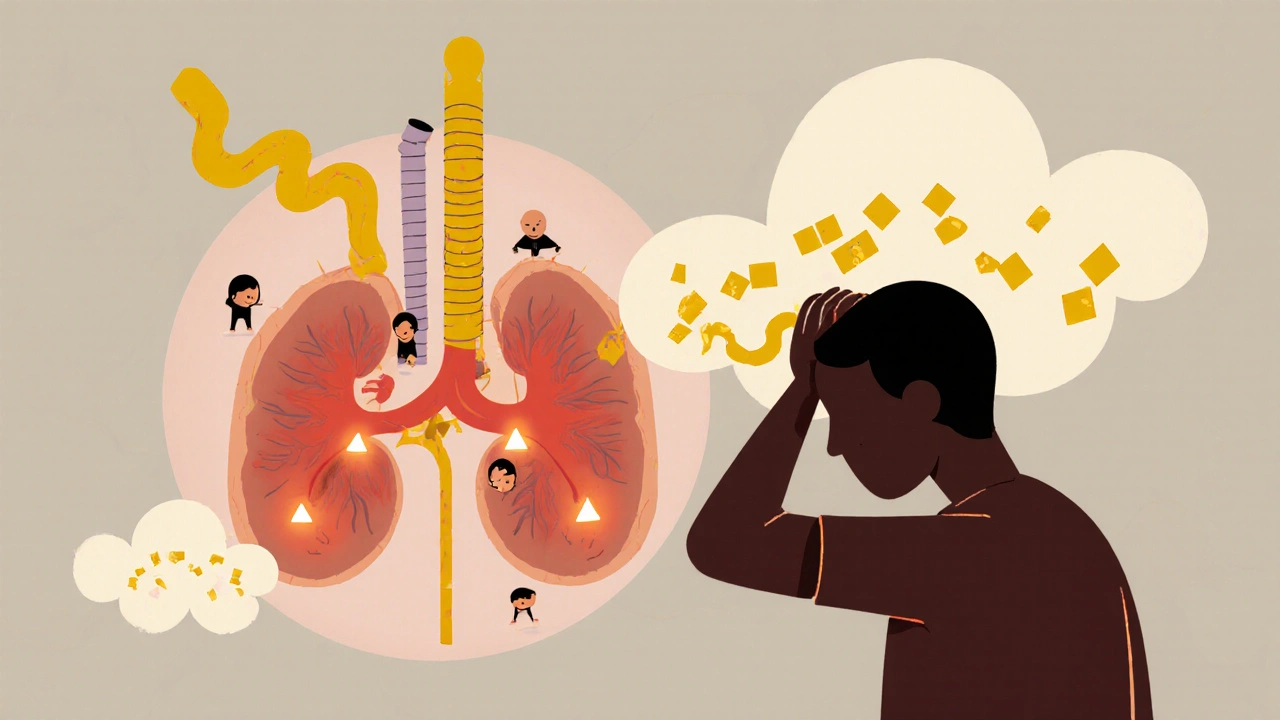Bone Loss: What Causes It and How Medications Can Help or Hurt
When your bones start to weaken, it’s not always because you’re getting older. Bone loss, the gradual thinning and weakening of bone tissue that can lead to fractures. Also known as osteopenia or osteoporosis when severe, it’s often silent until a fall breaks a hip, spine, or wrist. This isn’t just about calcium supplements or yoga—it’s deeply tied to what you’re taking every day.
Many common medications quietly eat away at bone density. Think about corticosteroids, drugs like prednisone used for asthma, arthritis, or autoimmune conditions. Even a few months on these can speed up bone loss. Then there’s proton pump inhibitors, acid reducers like omeprazole that block stomach acid. Studies show long-term use may interfere with calcium absorption. And if you’re on thyroid hormone, for hypothyroidism, too much can trigger bone thinning. These aren’t rare side effects—they’re well-documented, and many people don’t connect their fractures to their prescriptions.
But it’s not all bad news. Some drugs actually fight bone loss. Bisphosphonates, like alendronate or risedronate, slow down bone breakdown and are standard for osteoporosis. Others, like denosumab, a monthly injection that blocks a key bone-destroying signal, work differently but just as effectively. The trick? Knowing which meds help and which hurt—especially when you’re on multiple prescriptions.
It’s not just about pills, either. Low vitamin D, the nutrient your body needs to absorb calcium from food, is a silent player in bone loss. So is too little calcium, the main building block of bone. But here’s the catch: taking more calcium won’t fix it if your body can’t use it. That’s where vitamin D, weight-bearing exercise, and avoiding smoking come in. And if you’re a post-menopausal woman? Hormone changes can turn bone loss into a fast track to fractures.
You’ll find posts here that break down how common drugs—from diabetes meds to blood thinners—can quietly affect your bones. You’ll see how to tell if your fatigue or joint pain might be linked to bone thinning, not just aging. And you’ll learn how to talk to your doctor about deprescribing risky meds without risking your other conditions. This isn’t about fear. It’s about awareness. Your bones are working hard every day. Make sure your meds aren’t working against them.
Hyperparathyroidism: High Calcium, Bone Loss, and When Surgery Is Necessary

Hyperparathyroidism causes high calcium, bone loss, and chronic fatigue. Surgery is the only cure. Learn the signs, when to act, and what to expect after treatment.
- November 20 2025
- Tony Newman
- 12 Comments
